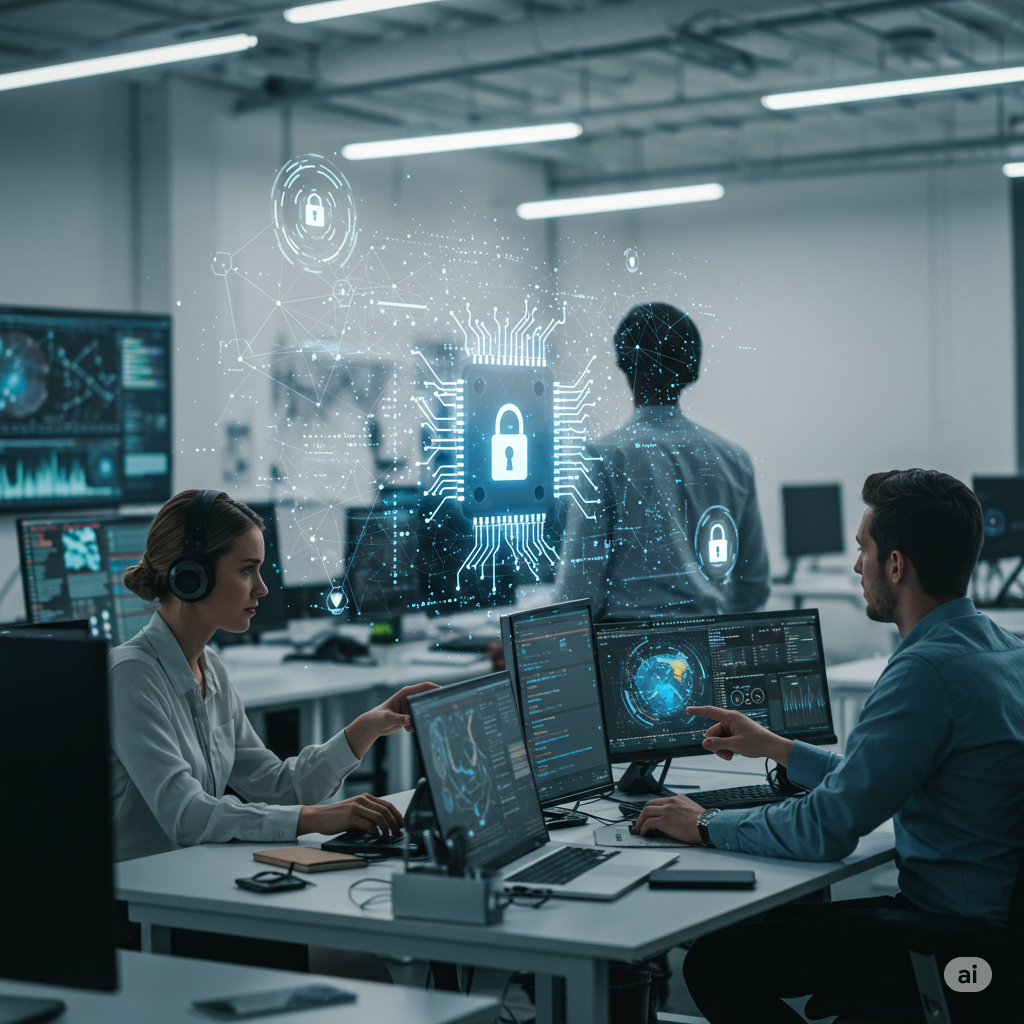Navigating the Digital Maze: Understanding Cybersecurity and Data Privacy in the Modern Era
We live in an unprecedentedly interconnected world. From our smartphones to our smart homes, from online banking to social media, digital technologies have woven themselves into the very fabric of our daily lives. This digital revolution, while offering immense convenience and opportunities, has also ushered in a new set of challenges, primarily concerning cybersecurity and data privacy. Understanding these concepts is no longer optional; it’s a fundamental necessity for navigating the complexities of the digital age, both for individuals and organizations.
At their core, cybersecurity and data privacy are intertwined but distinct. Cybersecurity focuses on protecting digital assets – including hardware, software, networks, and data – from unauthorized access, use, disclosure, disruption, modification, or destruction. Think of it as the digital equivalent of locks on your doors and security guards for your valuables. Data privacy, on the other hand, centers on the rights of individuals to control how their personal information is collected, used, and shared. It’s about establishing boundaries and ensuring transparency and accountability in the handling of sensitive data.
The increasing sophistication of cyber threats makes robust cybersecurity measures paramount. Attackers are constantly evolving their tactics, employing methods like:
- Malware: Malicious software, such as viruses, worms, ransomware, and spyware, designed to infiltrate and damage computer systems, steal data, or disrupt operations. For example, ransomware can encrypt your files and demand a ransom payment for their release.
- Phishing: Deceptive attempts, often through emails, messages, or fake websites, to trick individuals into revealing sensitive information like passwords, credit card details, or personal identification numbers. Imagine receiving an email that looks like it’s from your bank, asking you to update your login credentials on a fake website.
- Distributed Denial of Service (DDoS) Attacks: Overwhelming a target server or network with a flood of traffic from multiple compromised computer systems, rendering it unavailable to legitimate users. This can disrupt online services and cause significant financial losses for businesses.
- Social Engineering: Manipulating individuals into performing actions or divulging confidential information. This could involve someone impersonating a colleague to gain access to sensitive data or tricking an employee into clicking a malicious link.
- Insider Threats: Security breaches or data leaks caused by individuals within an organization, whether intentionally or unintentionally. This highlights the importance of thorough vetting processes and access controls.
The consequences of inadequate cybersecurity can be severe, ranging from financial losses and reputational damage for organizations to identity theft, fraud, and emotional distress for individuals.
Simultaneously, the proliferation of data collection and processing necessitates a strong focus on data privacy. Our digital footprints are constantly expanding as we interact with online services, use mobile applications, and even connect smart devices. This generates vast amounts of personal data, including:
- Personally Identifiable Information (PII): Data that can directly identify an individual, such as name, address, email address, phone number, social security number, and date of birth.
- Financial Information: Credit card numbers, bank account details, and transaction history.
- Health Information: Medical records, diagnoses, and treatment details.
- Location Data: Information about where a device or individual is or has been.
- Browsing History and Online Activity: Records of websites visited, searches performed, and online purchases made.
Protecting this data is crucial. Data breaches can expose individuals to significant harm, and the misuse of personal information can lead to discriminatory practices, unwanted surveillance, and erosion of trust in digital services.
Several regulations and frameworks have emerged globally to address data privacy concerns, such as the General Data Protection Regulation (GDPR) in the European Union and various data protection laws in India. These regulations typically emphasize principles like:
- Transparency: Organizations should be clear about what data they collect and how they use it.
- Purpose Limitation: Data should only be collected and processed for specified and legitimate purposes.
- Data Minimization: Organizations should only collect the data they truly need.
- Accuracy: Personal data should be accurate and kept up to date.
- Storage Limitation: Data should only be kept for as long as necessary.
- Integrity and Confidentiality: Data should be protected against unauthorized access and processing.
- Accountability: Organizations are responsible for complying with data protection principles.
So, what can you do to enhance your cybersecurity and protect your data privacy in this digital age?
For Individuals:
- Use strong, unique passwords: Avoid easily guessable passwords and use a combination of uppercase and lowercase letters, numbers, and symbols. Use a password manager to securely store and generate complex passwords.
- Enable Multi-Factor Authentication (MFA): Add an extra layer of security to your accounts by requiring a second verification step, such as a code sent to your phone, in addition to your password.
- Be cautious of suspicious emails and links: Don’t click on links or open attachments from unknown senders. Be wary of emails asking for personal information.
- Keep your software updated: Regularly update your operating system, web browser, antivirus software, and other applications to patch security vulnerabilities.
- Use a reputable antivirus and anti-malware program: Install and maintain security software on your devices.
- Be mindful of what you share online: Think twice before posting personal information on social media or other online platforms.
- Review privacy settings: Regularly check and adjust the privacy settings on your social media accounts, apps, and online services to control who can see your information.
- Use secure Wi-Fi networks: Avoid connecting to public Wi-Fi for sensitive transactions. Consider using a Virtual Private Network (VPN) to encrypt your internet traffic.
- Educate yourself: Stay informed about the latest cyber threats and data privacy best practices.
For Organizations:
- Implement robust cybersecurity measures: This includes firewalls, intrusion detection systems, data encryption, access controls, and regular security audits.
- Develop and enforce data privacy policies: Clearly outline how personal data is collected, used, and protected.
- Provide regular cybersecurity and data privacy training to employees: Human error is a significant factor in many security breaches.
- Implement data minimization and purpose limitation principles: Only collect and retain data that is necessary for specific business purposes.
- Ensure compliance with relevant data protection regulations: Understand and adhere to laws like GDPR and local data protection acts.
- Establish incident response plans: Have a clear plan in place to address security breaches and data leaks effectively.
- Practice data security by design: Integrate security and privacy considerations into the development of products and services from the outset.
- Be transparent with users about data practices: Clearly communicate your data collection and usage policies.
In conclusion, cybersecurity and data privacy are not just technical issues; they are fundamental aspects of our digital existence. As technology continues to evolve, so too will the threats and challenges we face. By understanding the risks, implementing proactive measures, and staying informed, both individuals and organizations can navigate the digital maze more securely and protect the valuable data that underpins our modern world. The responsibility lies with each of us to be vigilant and prioritize our digital safety and privacy in this increasingly interconnected age.
At 7Shades Digital, we specialised in creating strategies that help businesses excel in the digital world. If you’re ready to take your website to the next level, contact us today!





